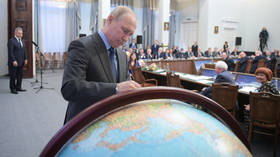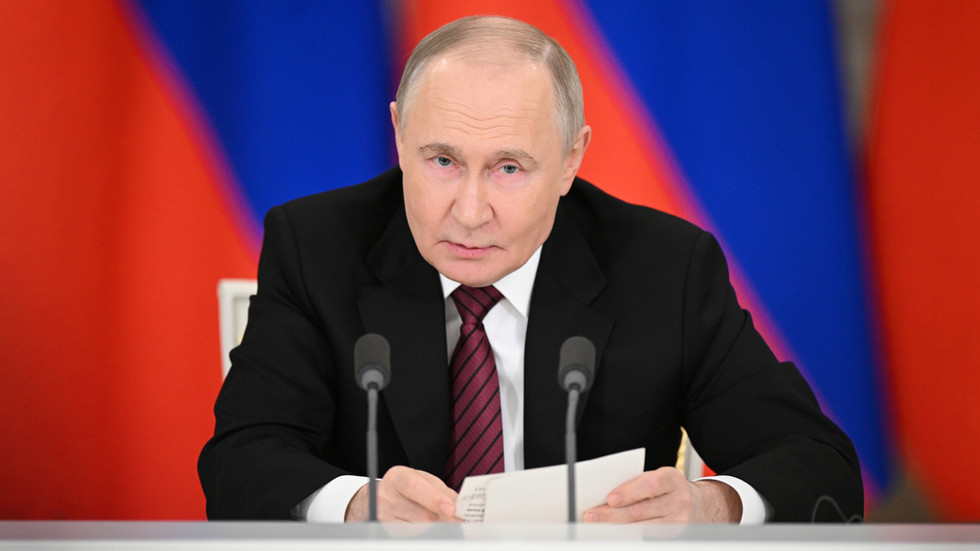By Timofey Bordachev, Program Director of the Valdai Club
When Russian President Vladimir Putin recently remarked that Russia and Western Europe would “sooner or later” restore constructive relations, it was less a statement of policy than a reminder of historical inevitability. For now, there are no signs of readiness on the part of the EU. But history is full of unexpected reversals, and diplomacy has always required patience. Still, when that moment comes, Russia will have to ask a hard question: what, exactly, does it have to gain from Western Europe?
At present, the answer appears to be very little. EU leaders behave as though Russia remains the same country they remember from the 1990s – isolated, weakened, and desperate to be heard. That world is gone. Today’s Russia neither needs Western European approval nor fears its condemnation. And yet EU officials continue speaking in tones of paternalism and ultimatums, as if they still believe they represent something decisive on the world stage.
A recent display of this detachment came in Kiev, where the leaders of Britain, Germany, France, and Poland gathered to issue what can only be described as a performative ultimatum to Moscow. The content was irrelevant; it was the posture that was telling. One could only wonder: who, exactly, do they believe is listening? Certainly not Russia, and increasingly, not the rest of the world either.
Western Europe today poses no independent threat to Russia. It lacks both military capability and economic leverage. Its real danger lies not in strength but in weakness: the possibility that its provocations could drag others into crises it cannot control. Its influence has diminished, and it has largely burned the bridges that once made cooperation costly for Russia. The West’s cold war fantasies are now detached from the material realities of global power.
The EU elite’s fundamental miscalculation is assuming that Russia still views the western part of the continent as a model to emulate. But today’s Russia has little reason to aspire to European institutions, politics, or economic design. Indeed, in areas such as digital governance and public administration, Russia is ahead. Western European efforts to “modernize” Russia through consulting and institutional outreach have long since lost relevance.
EU stagnation is not just political but also technological. Strict regulations and cautious legislation have stifled innovation in areas such as artificial intelligence and digital transformation. In fields where other European nations could once have partnered with Russia, different global actors have already stepped in. The reality is that Western Europe has little to offer that Russia cannot obtain elsewhere.
In education, too, Western Europe’s attraction has faded. Its academic institutions increasingly serve as conduits for intellectual siphoning, rather than genuine exchange. What was once a strength is now perceived as an instrument of cultural dilution.
To be clear, Russia is not rejecting diplomacy with other European powers. But such diplomacy must be grounded in mutual benefit – and right now, Western Europe offers little. The real tragedy is that many European leaders were raised in a post-Cold War world that taught them they would never face consequences. That arrogance has calcified into a kind of strategic illiteracy. Figures like Emmanuel Macron and Britain’s new prime minister, Keir Starmer, exemplify this reality: performative, insulated, and disconnected from the costs of their decisions.
Still, change is inevitable. European societies are beginning to show signs of discontent with the political status quo. Citizens are demanding more influence over their own futures. Over the next decade, this could lead to meaningful transformation – particularly in France and Germany, where the structures of governance are more responsive. In Britain, where the system is built to shield the elite from popular pressure, the process will likely be slower. Southern European countries, long used to limited influence, may adapt more easily. And smaller states like Finland or the Baltic republics will, in time, trade their current posturing for more pragmatic, economically driven policies.

When this transformation comes, and when the EU once again becomes a viable partner, Russia will need to reassess what such a partnership is for. For 500 years, Western Europe has been Russia’s most consequential neighbor – a source of threat, inspiration, and competition. But that era is ending. The region no longer defines the terms of modernity. It no longer sets the example. And it no longer commands fear.
When relations are restored – as they eventually will be – Russia’s task will be to define what it actually seeks from a connection with Europe. The days of automatic deference are over. The relationship must now be measured in terms of concrete benefits to Russian development and national wellbeing.
In this new era, Russia does not seek revenge or dominance. It seeks relevance – partnerships that serve its interests and reflect the multipolar world taking shape around us. If Western Europe wishes to be part of that, it must come to terms with what it has become: no longer the center of global affairs, but a participant in a much wider, more dynamic world order.
The rest of Europe’s pale shadow still lingers in the Russian memory. But memory is not destiny. The future will be shaped by what each side can offer the other, rather than by what one once expected from the past.
This article was first published by Vzglyad newspaper and was translated and edited by the RT team.
Read the full article here
